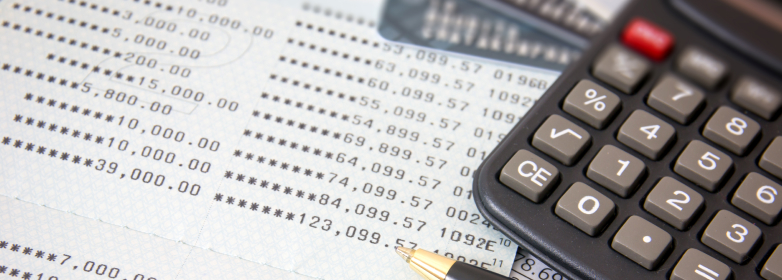If you’ve ever applied for a loan or credit card from a bank or a personal loan from a licensed lender, you will have an active credit file with the Credit Bureau Singapore and Moneylenders Credit Bureau respectively.
The two bureaus store all of your financial activities, from loan approvals to how much active credit you have. More importantly, they record how much debt you’ve taken on and how punctual you are when it comes to repaying your loan instalments and credit card bills.
The data from your Credit Bureau Singapore’s credit report is important as it decides whether you have good or bad credit, and is available at any time to potential lenders. Major banks and financial institutions will use this information, along with your proof of income, to decide whether to approve your loan or not.
On the other hand, legalised money lenders in Singapore don’t. Instead, they’ll look at your Loan Information Report from the Moneylenders Credit Bureau to help them make an informed decision on whether to give approval to those who are looking for loans with bad credit or any other type of loan that’s on offer.
Curious about whether it’s easy to obtain bad credit loans in Singapore? Read on to learn more about credit scores, factors that affect loan approvals, what bad credit loans are, how and where to obtain loans for poor credit history, etc.
Just so you know, legal loans for bad credit folks in Singapore and money lenders for bad credit exist. So, don’t fret if you happen to have a poor credit score but are in urgent need of gathering funds.
Foremost, what constitutes a good or bad credit score?
Your credit score is derived from the information in your active credit file at the Credit Bureau Singapore. It ranges from 1,000 to 2,000, with eight risk grades in total. The higher your score, the lower your probability of defaulting on a loan. To a loan provider, you’re more trustworthy as a borrower. If your credit score is between 1,000 and 1,723, it counts as a bad credit rating.
On the other hand, having a credit score of 1,911 to 2,000 means that you have the best risk grade, with only a 0-0.27% probability of defaulting.
Does a bad credit score affect loan approval?
Yes, very much so. It can lead banks and financial institutions to conclude that you are a risky borrower and impact the odds of your loan getting approved. Additionally, bad credit can affect the amount of money which these loan providers are willing to provide.
Remember, your financial history and situation combined will determine whether you’re a reliable and creditworthy borrower to banks and financial institutions. It’s important to borrow within your means, while ensuring you’re making your repayments punctually. These help to improve your credit score, which is measured on a rolling basis.
What other factors affect loan approval?
As mentioned above, your credit score isn’t the only piece of information that banks and financial institutions look at when deciding whether to approve your loan application. Here are several more factors that impact their decision:
1. Loan Repayment History
Late loan repayments are recorded in both your credit report and Loan Information Report, regardless of the type of loan you’ve taken up. Routinely missing repayments for your credit card, home loan from a bank, personal loan or renovation loan from a licensed lender will negatively affect your credit rating. To be exact, this factor can make up as much as 35% of your credit score. Late or missed loan repayments contribute to a poor Loan Information Report as well.
2. Debt Collection Agencies Getting Notified
This next factor is related to the first one detailed above. Falling behind on your loan repayments can lead the licensed lender to transfer your account to a debt collection agency. Once this happens, it’s recorded in your file as well.
Do note that a licensed lender will only do this if you consistently miss your loan repayments and/or fail to make the minimum monthly repayment. What’s more, they will contact you to warn you and give you a heads up as well. There is definitely ample time for you to allocate your finances and ensure that you’re not falling behind on your loans.
3. Overdue and Uncollected Debt
Overdue and uncollected debt is commonly known as a charge-off. A charge-off typically occurs when the lender has given up on a set amount of payments from the borrower.
However, the borrower doesn’t get away scot-free. A charge-off leaves a severe dent in the borrower’s credit file and you’re still legally mandated to repay the lender. You’re still in debt until your loans are paid off or you declare that you’re bankrupt.
A similar phenomenon is loan defaulting. It occurs when repayments aren’t made for a certain period of time. Once this happens, the information is forwarded to the Credit Bureau Singapore and Moneylenders Credit Bureau, and it damages your credit rating. As a result, prospective lenders will view you as a relatively riskier borrower.
4. Bankruptcy
When you’re unable to pay off your debt, you may be forced into filing for bankruptcy to obtain legal protection. Filing for bankruptcy is considered a last resort measure and it is also the most damaging to your credit score.
When you file for bankruptcy, it will usually stay on your record for up to a decade. Having a history of bankruptcies will strongly discourage a financial institution from approving your loan, as you have not been able to prove that you’re a responsible borrower.
With that being said, there are still licensed lenders who might approve your loan application despite your past bankruptcy record(s). However, you will need to prove that you’ve been discharged from bankruptcy, your income is stable, and that you can repay the amount borrowed punctually.
Does a bad credit score affect loan approval from a licensed lender?
You can still get a loan with bad credit ratings; licensed lenders are more lenient and open to the idea of providing loan approvals for bad credit loans. It rarely is the cause of loan rejection.
This is particularly true if you have consistent income, are able to produce all other necessary documents, and have not exceeded the maximum loan amount across licensed lenders at any one point in time. All of which are imperative to getting bad credit personal loans in Singapore.
What are bad credit loans or loans for bad credit?
Bad credit loans or loans for bad credit records are personal loans for folks with bad credit. Licensed lenders offer bad credit loans to people who are unable to obtain loans from traditional banks and financial institutions due to their poor credit scores or credit history.
For the most part, licensed lenders do not discriminate against applicants just because of their less than ideal credit scores at the Credit Bureau Singapore. Licensed lenders like UK Credit are more than happy to provide loans for poor credit scores, provided that all requirements are met.
How do bad credit loans in Singapore work?
Bad credit loans in Singapore from licensed lenders work just like any other regular personal loan that these money lenders for bad credit offer. They are typically unsecured in nature, and can be used flexibly for any situation.
Bad credit loans in Singapore from licensed lenders are disbursed in a lump sum and paid back via regular monthly instalments throughout the loan tenure agreed upon, usually between three and 12 months.
Benefits of UK Credit’s bad credit loans
- Accessible to all
- No credit score discrimination
- Flexible loan package with fair terms
- Easy application process
- Swift loan approval
- Instant loan disbursement
What are the eligibility and document requirements to get bad credit loans?
Eligibility requirements
Singaporeans, Permanent Residents and foreigners who are living and working in Singapore who can show proof of consistent income and are above 21-years-old can apply for bad credit loans from licensed lenders like UK Credit.
Document requirements
Singaporeans/Permanent Residents
- NRIC
- CPF statements or Notice of Assessment from IRAS
- Latest 3 months’ payslips preceding loan application
Foreigners
- Work pass
- Document showing proof of residential address (e.g. phone bill, utility bill, rental agreement)
- Latest 3 months’ payslips preceding loan application
How to apply for bad credit personal loans with UK Credit
You may apply for bad credit personal loans in-person at UK Credit’s office during office hours or simply submit your loan application on our website anytime you wish. UK Credit’s friendly loan officer will contact you with details on next-steps in no time.
How fast can I receive funds from bad credit personal loans?
Once the loan officer has gone through your loan contract and explained all the loan terms and conditions with you in person, you may sign off on the loan contract if you’re agreeable to all that’s discussed and stated.
Thereafter, you will receive your funds from your bad credit loan immediately on the spot — either in cash or through bank transfer.
When might you need loans for bad credit in Singapore?
There are many instances where you might find yourself in need of loans for bad credit in Singapore, if you happen to have a bad credit score.
Here’s a list of possible scenarios (not-exhaustive)
- Medical emergencies
- Delayed payments on employers’ or customers’ end
- Family member’s funeral
- Unexpected car or motorbike repair fees
- Unforeseen breakdown of big ticket home appliances, etc
How to improve your credit rating over time?
The easiest way to improve your Credit Bureau Singapore credit score or Moneylenders Credit Bureau credit rating records is to make prompt repayments whenever you have a loan to pay down.
While this takes time and diligence, your efforts will pay off over time. This is why it is so important to be consistent and not fall back on your repayments. Avoid missed or skipped repayments at all cost if your aim is to ultimately boost your credit rating.
Perks of improved credit rating
It’s important to maintain a good credit score for several reasons. Firstly, it improves the chances of a lender approving your loan application. Secondly, it also allows the lender to offer you better interest rates, since they can trust you to repay your instalments on time.
This has the added effect of encouraging you to return to the same lender when you need a loan in the future. All in all, it creates good business. When you have a bad credit score, you are much less likely to be afforded these benefits.
Conclusion: UK Credit offers custom personal loans for bad credit
A bad credit score might affect loan approval, but there are still legal avenues to turn to when you urgently need money for an emergency. A licensed lender can still approve your loan, especially when you prove that your monthly income is stable.
If you’re looking for a top-rated money lender for bad credit, do consider UK Credit. We have been operating since 2008 and we offer a wide range of personal and business loans, including loans for poor credit history.
Simply reach out to us to receive a personalised quote for a personal loan for bad credit from our experienced loan executives as soon as possible!
About the Author
Launched in 2008, UK Credit has long established itself as a trustworthy, authorised lender in Singapore’s crowded moneylending scene. We make it our mission to provide fully customised loan solutions, exceptional customer service, as well as share all-important knowledge on everything loan-related.










